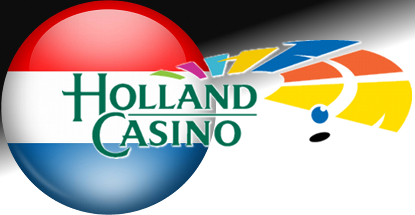 Holland Casino is back in the black after recording a €12m profit in 2014, its first positive annual report in seven years.
Holland Casino is back in the black after recording a €12m profit in 2014, its first positive annual report in seven years.
The Netherlands’ state-owned brick-and-mortar casino monopoly credited the turnaround to a reorganization that has included several hundred redundancies among its staff. The chain’s 14 gaming joints also saw improved table game revenues.
The Dutch government is in the process of privatizing Holland Casino, with 10 casinos to be sold off in a group that will continue to use the Holland Casino brand, while the other four casinos will be sold individually. The government hopes to complete the process by 2017, by which time Holland Casino’s online gambling partnership with technology firm Playtech should be up and running.
The Netherlands is in the process of regulating its online gambling market but public officials have suggested the Remote Gambling Bill won’t take effect for at least another year. On Jan. 30, Michel Groothuizen, director general of sanctions and prevention policy for the ministry of security and justice, said officials were neck deep in preparing their response to a 586-question critique of the Bill by members of the Dutch parliament’s Lower House. As such, Goothuuizen said he didn’t expect the licensing process to begin until mid-2016 at the earliest.
NO MORE ONLINE HOUSE LOTTERIES IN HOLLAND OR ELSE
Meanwhile, the Kansspelautoriteit (Dutch Gaming Authority) has triumphed over yet another person trying to sell their house via an online lottery. In 2013, a homeowner in Winterswijk launched a website (dreamrealize.net) that offered the chance to buy 60,000 ‘certificates’ at €50 apiece to win his home. The Kansspelautoriteit declared this was an illegal lottery and warned the homeowner to cancel the lottery. Instead, the homeowner lawyered up and the parties went to court.
Last month, a court in Gelderland sided with the Kansspelautoriteit, saying that describing the chances to win as ‘certificates’ couldn’t hide the fact that this was an unauthorized lottery. The homeowners’ promotion of his raffle also violated the Games of Chance Act. It didn’t matter that the company set up to process the raffle was based in Costa Rica; if the lottery was being offered in the Netherlands, then Dutch laws apply.
The Winterswijk homeowners’ plight mirrored that of the poor octogenarian couple that had the audacity to include a Dutch-language version of their online house lottery. Though their house was based in South Africa and the website was based in Austria, the Kansspelautoriteit hit the couple with an €80k fine last year for promoting their lottery over social media in the Dutch language.






